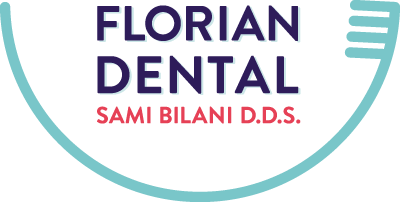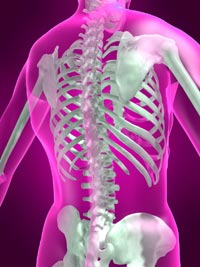While genetic factors play a significant role in determining bone mass, controllable lifestyle factors such as nutrition and physical activity can make the difference between a frail and strong skeleton.
Maintain a Healthy Lifestyle:
• Do weight-bearing and resistance exercises for 30 to 45 minutes at least three time a week.
• Always select calcium supplement brand that also contains at least 400 IU of Vitamin D, depending on your level of risk.
• Calcium Citrate supplement such as Citracal is more readily absorbed than Calcium Carbonate supplement or Tums.
• Our body cannot absorb large doses of calcium (500 mg) at once; so spread your calcium consumption of both food and supplements over the day.
• Take all calcium supplements separate from Thyroid medication and Iron supplements.
• Do not smoke. Some studies have shown that smoking increases the risk of developing osteoporosis by 50%.
• Talk to your healthcare professional about bone health; and Bone density testing and medications when appropriate.
Bone Builders :
Eat a diet rich in foods that contain adequate amounts of following nutrients that support bone health:
CALCIUM (Ca)
RECOMMENDED INTAKE
ADULTS 1000-1200 MG/DAY
FOODS Serving Calcium
Soy Milk 1 cup 200-400mg
Sardines bones 3.5 oz 300mg
Sesame seeds,
ground, whole 3 Tbs 300mg
Almonds 1 cup 300mg
Milk; skim 1 cup 300mg
Cheese 1.5oz 300mg
Yogurt, nonfat 1 cup 294mg
Sea Vegetables 1/2 cup 152-283mg
Bok choy 1 cup 200mg
Kale 1 cup 179mg
Broccoli 1 cup 150mg
Chick peas(cooked) 1 cup 150mg
Tofu 4oz 80 – 150mg
Molasses 1 tbs 137mg
Parsley (raw) 1 cup 122mg
Corn tortillas 2 120mg
Sardines 3oz 424mg
Bone Reducers :
- Avoid excessive amounts of the retinol form of Vitamin A, since it may increase the breakdown of our bones and interfere with Vitamin D, which we need to help us absorb calcium. Retinol sources include animal-source foods such as liver, egg yolks, cheese, and milk. Dietary supplements and some acne preparations also contain retionol. RDAs for Vitamin A are 3,000 IU for Men and 2330IU for Women where daily intakes over 10,000 IU of the retinol form of Vitamin A are not recommended.
- Limit your salt intake to <2000 mg/day by avoiding table salt, and processed foods.
- Limit caffeine intake to about 4 cups a day. This includes tea, colas, and certain other sodas.
- Limit your intake of alcohol to 1 glass/day for women and 2 glasses/day for men.
- Avoid high protein low carbohydrate diet such as “Atkins Diet”.
- Avoid supplements made from calcium phosphate.
- Avoid antacids containing aluminum.
Terms associated with bone health :
- Bone Remodeling: Bone resorption and bone formation, a dynamic, normal process.
- Mineralization: ability of bone to absorb and hold on to minerals, calcium, magnesium, sodium and phosphate
- Osteomalacia: Adult rickets caused by vitamin D deficiency and low absorption of calcium
- Ostepenia: reduced bone mass at any stage of life but the remaining bone has normal mineralization
- Osteoporosis: general loss of bone mass with insufficient protein and collagen, reduced flexibility and reduced strength. Risk of fracture increases.
- Resorption: 2 weeks, osteoclasts clear calcium from bone stores and (bone to blood)
- Rebuilding: Rebuilding of the osteoblast (blood to bone) is much slower, 3-6 months.

